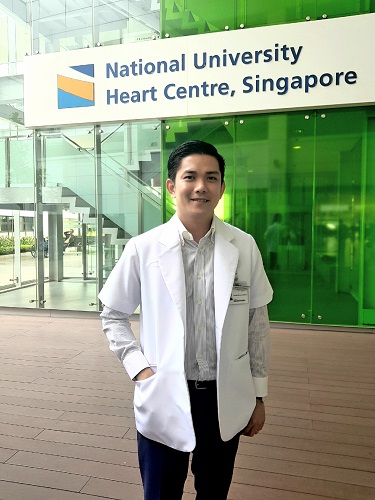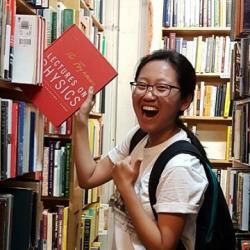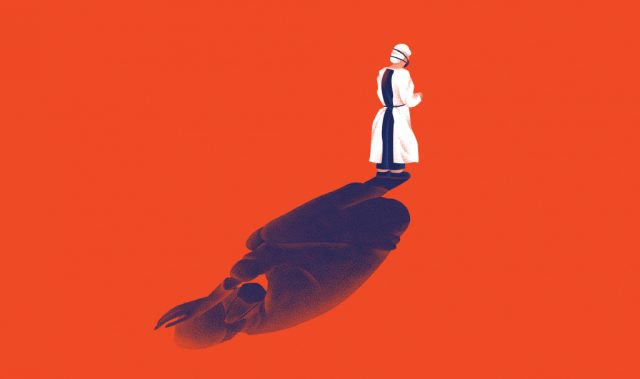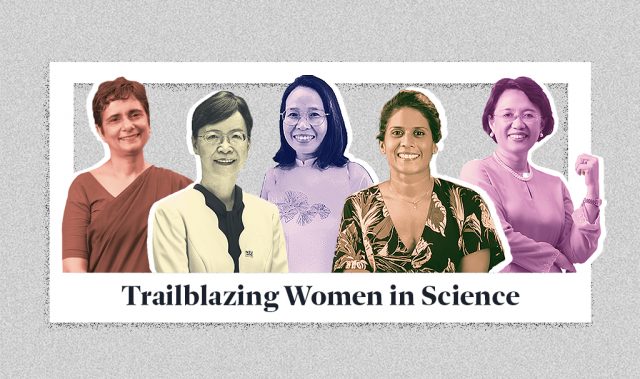
AsianScientist (Sep. 20, 2017) – Pharmaceutical drugs and medical technologies require years of clinical research before they can receive regulatory approval for use in the clinic. For the data to be reliable and statistically significant, hundreds to thousands of patients must be recruited to these clinical trials, where in most cases a sample of blood, saliva, tissue or urine is collected and analyzed.
Doctors cannot carry out these clinical trials alone. Here, clinical research coordinators (CRCs) play a critical role in supporting the research, by recruiting patients and carrying out the protocols required.
Recognizing the importance of CRCs to Singapore’s clinical research capabilities, the Ministry of Health recently announced S$35 million of funding over the next five years to support the careers of CRCs and conduct training programs for them.
Interested to find out if being a CRC is for you? We checked in with Mr. Manolo Calma, a CRC from the National University Health System (NUHS) in Singapore, to learn how CRCs help clinical research proceed smoothly and efficiently.
Calma works with Assistant Professor Chester Drum, a senior consultant at the National University Heart Centre, Singapore (NUHCS), who is also a principal investigator on a study to see if genetic background influences a person’s response to statin therapy. By analyzing blood samples from long-time statin users who have agreed to participate in the trial, the research team hopes to gain insights that could lead to the safer use of statin drugs.
- What is a day in the life of a CRC like?
- What are the responsibilities of your job?
- What are the qualification requirements to be employed as a CRC?
- What helps you excel in this job?
- What are some of the challenges you face in your work and how do you overcome them?
- Do you enjoy your job? What do you like most about your work?
- If you could change anything about your job, what would it be?
Every morning, I will attend to all study subjects that we have scheduled to collect blood samples from. On average, I usually process three patients per day. I draw blood twice from each study subject—once in the morning and once in the afternoon. In between, I conduct study subject recruitment and perform all the administrative tasks such as data entry in the afternoon.
I am primarily responsible for the recruitment of study subjects. An important part of recruitment is to obtain informed consent: making sure every subject understands how his or her sample will be used before giving consent.
As mentioned earlier, the collection of blood samples also falls under my purview. I conduct procedures such as venipucture, or blood drawing. We usually schedule the subject for blood collection in conjunction with their doctor’s appointment. On the same day, we will obtain further information about the subject for the principal investigator to review and assess whether or not it is safe to continue with the study.
Clinical research also involves huge volumes of patient samples and data, and I am responsible for logging all this information into a master file for easy reference by clinicians.
Additionally, I attend a weekly teleconference to review the research study protocols. This is an important part of my work because protocols must run in compliance with the Singapore Guidelines for Good Clinical Practice (SGGCP). The weekly teleconference also helps keep me updated with the progress of the research.

To become a CRC, most institutions require that a candidate must have a degree in the life sciences, or a diploma or degree in nursing. Upon employment, you will be required to attend a course and get certification verifying that you have read and understood the SGGCP.
You will also need to attend basic training to be able to work in the laboratory. Some research studies will require blood samples from the subject, so you will have to attend a venipuncture or phlebotomy course and get certified as well. Experience in related fields is preferred, but you will be trained and learn the workflow as you go along.
Firstly, you need to learn to work independently. Most of the time, you are working alone, so you should learn how to manage your time efficiently. You need to set a goal for yourself every day and make sure to accomplish it.
Secondly, if you are working with other CRCs, you need to be a team player. You should learn how to delegate tasks to other or new CRCs and work collaboratively. Be proactive!
I believe some individuals are born with these skills, but most of the time these skills are developed through years of experience and training.
The most common challenge that I face every day is the recruitment of study subjects. Of course, my wish is that every potential patient I sit and talk with will agree to participate in our study, but this is not always the case. In recruiting a subject, you need to be equipped with interpersonal skills so as to better manage resistance from the patient, and sometimes from the patient’s family members.
I always set a target for myself to recruit a certain number of patients every day. Sometimes, I end up spending the whole day in the clinic just to hit this target number.
Definitely yes, I do enjoy my job. The part I enjoy most is interacting with people, with patients and recruiting them. Just the thought of being part of new medical discoveries makes me feel proud.
I would not change a thing! I just joined the team a year ago, so I am still in the process of learning. I believe that there is a lot more that I can do in this role.
Click here to find out more about other interesting careers in the healthcare sector!
———
Copyright: Asian Scientist Magazine; Photo: Shutterstock.
Disclaimer: This article does not necessarily reflect the views of AsianScientist or its staff.












